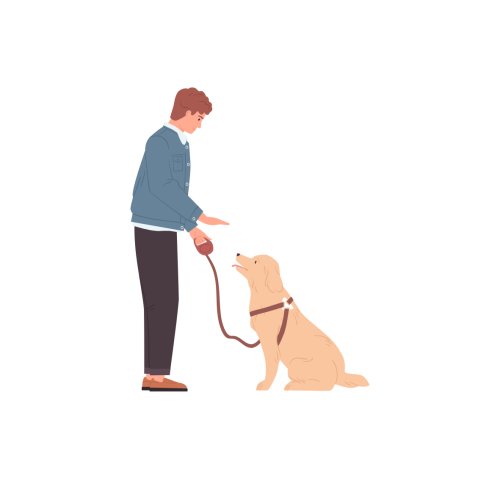The Importance of Training your Dog
Posted on
Regular training is a fantastic way to build a bond with your dog. Understanding how your dog learns, and what things they may struggle with can create that bond between dog and owner.
Training can be started at any age. However, it is recommended to start as early as you can. Training your dog at a young age can help to prevent bad habits or behavioural issues before we start seeing them as a problem. This could be things like play biting, chewing, separation anxiety, jumping at yourselves, or guest, resource guarding, or anxiety around people or other dogs. However, it's never too late to train an older dog. You may have adopted an older rescue that needs some help socialising, being left alone or guarding varying resources.
Many behaviours that you teach your dog can benefit your daily lives. For example, a very good recall response. Having a solid recall is vital to ensure your dog is listening to you and comes back when needed. Ideally, your dog should be able to listen no matter the distraction around them and this can be crucial to prevent them running in trouble or even getting lost.
Making training for your dog fun and positive helps to teach new behaviours and with a little time and consistency, you can teach your dog anything! As well as teaching your dog the right behaviours or helping with issues, you need to provide as much mental and physical simulation as possible.
Training your dog is a great source of mental stimulation. Mental simulation can help to prevent your dog from getting bored and showing unwanted behaviours. The nice thing about using training as mental simulation is that you don't just have to do your basic level obedience, for example, sit, down, settle, etc. You can always work on nice fun tricks like spinning, rolling over, walking backwards, and coming to middle. If you keep it fun and positive your dog will engage more in the training and therefore get more out of each session.
Always remember to keep training sessions nice and short, especially with a puppy. Having shorter training sessions will keep your puppy more engaged and prevent them from getting bored or frustrated. Finish sessions on a nice positive note and always remember to progress their exercises based on how well they are getting on.
Charlotte - Behaviour Counsellor

